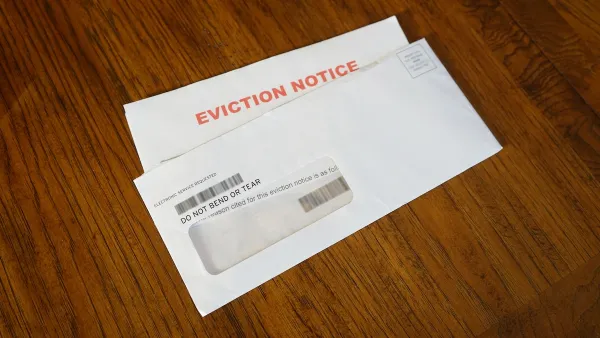What should we make of the administration’s tenants' rights announcement?

The Biden administration’s announcement on renters' rights on January 25 was a strange mix of radical and nothingburger.
On the one hand, outside of a few very important but narrowly focused laws like the Fair Housing Act, the federal government has, until now, not seen broad tenant protections as within its sphere of action at all. Anything to do with eviction policies, habitability and codes, or regulating rent increases has been left to states and localities. Someone asked me right after the announcement if I knew how long it had been since a president addressed tenant rights—they guessed the 1970s. Having recently edited a history of the National Tenants Union in the 1970s and ’80s, that era was fresh in my mind and I knew that despite active tenant organizing, federal action at the time was not pro-tenant, so I went back further and guessed the New Deal. But the New Deal was really focused on homeowners and creating public housing. I haven’t actually been able to find anything comparable in our history about renter rights and protections at all.
In that way, this is a really big deal. By taking it on at all, by making even a theoretical Blueprint for a Renters Bill of Rights, the Biden administration is acknowledging that this is something that the federal government has a legitimate interest in, power to act on, and responsibility to take seriously.
A year ago or so, we hosted a chat about security deposit policy in the U.K. Even more than the details of their policy, I remember that everyone in the office was mind-blown by the idea of a federal government that has a tenant policy. One where even Boris Johnson had to at least make a nod to wanting to support tenants somehow.
And so, the Biden announcement feels like it could be the beginning of a tremendous sea change. The administration has declared that the leases of today are a problem (we agree). It is engaging the Federal Trade Commission and the Consumer Financial Protection Bureau against the abuses of tenant screening companies, which could lead to real improvements in tenants’ lives if a crackdown occurs.
But most notable to me was the willingness to even state the phrase ...
[See full article, linked below, to continue reading.]
FULL STORY: Biden’s Renters Rights Blueprint: Meaningful or Not?

National Parks Layoffs Will Cause Communities to Lose Billions
Thousands of essential park workers were laid off this week, just before the busy spring break season.

Retro-silient?: America’s First “Eco-burb,” The Woodlands Turns 50
A master-planned community north of Houston offers lessons on green infrastructure and resilient design, but falls short of its founder’s lofty affordability and walkability goals.

Delivering for America Plan Will Downgrade Mail Service in at Least 49.5 Percent of Zip Codes
Republican and Democrat lawmakers criticize the plan for its disproportionate negative impact on rural communities.

Test News Post 1
This is a summary

Test News Headline 46
Test for the image on the front page.

Balancing Bombs and Butterflies: How the National Guard Protects a Rare Species
The National Guard at Fort Indiantown Gap uses GIS technology and land management strategies to balance military training with conservation efforts, ensuring the survival of the rare eastern regal fritillary butterfly.
Urban Design for Planners 1: Software Tools
This six-course series explores essential urban design concepts using open source software and equips planners with the tools they need to participate fully in the urban design process.
Planning for Universal Design
Learn the tools for implementing Universal Design in planning regulations.
EMC Planning Group, Inc.
Planetizen
Planetizen
Mpact (formerly Rail~Volution)
Great Falls Development Authority, Inc.
HUDs Office of Policy Development and Research
NYU Wagner Graduate School of Public Service





























